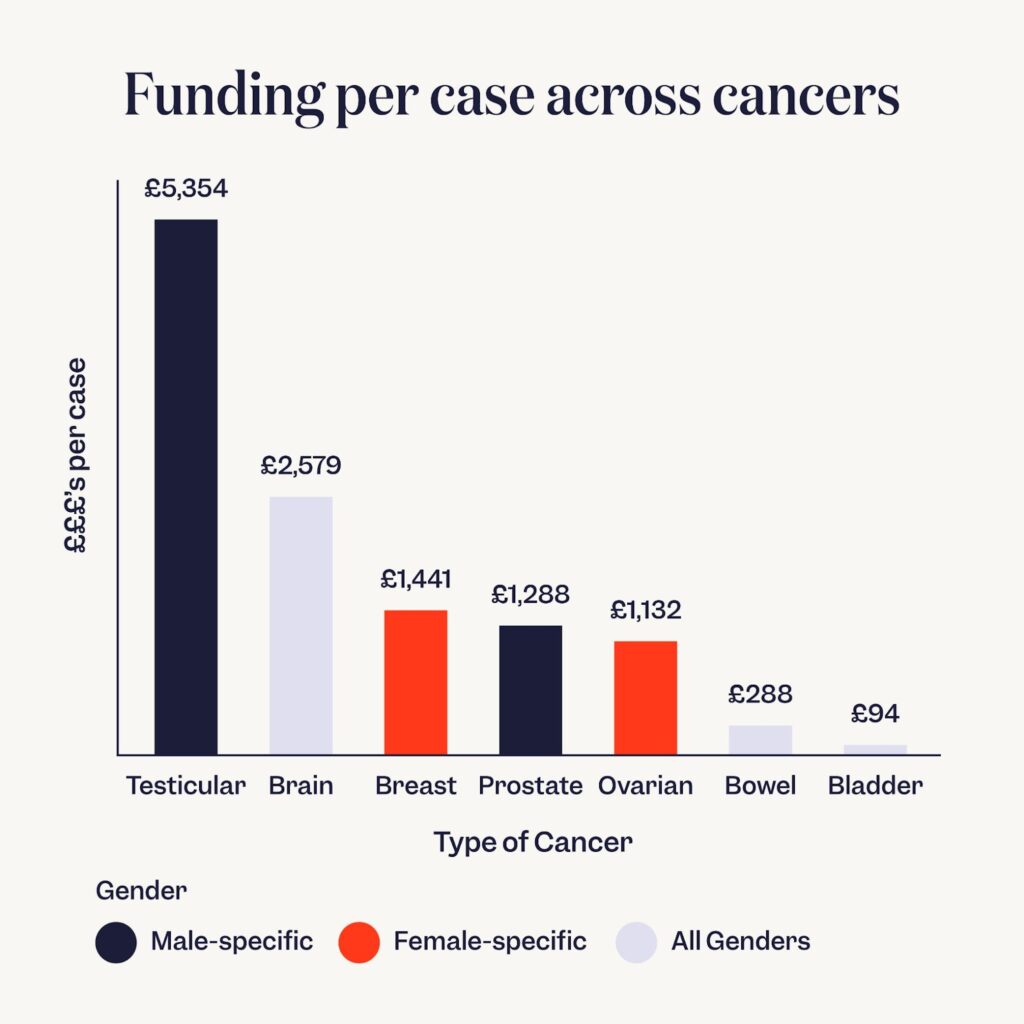Women’s cancers are deadlier, so why are they getting less funding?

New data from Jude reveals systemic gender bias in UK cancer funding.
When it comes to cancer funding in the UK, you’d assume money goes where it’s needed most, to the cancers that are the deadliest or hardest to detect.
But the latest data from bladder health brand Jude tells a different story.
Male-specific cancers like prostate and testicular cancer receive significantly more funding per case than female-specific cancers, even when women’s survival rates are lower.
Jude’s investigation into the UK charity register and public health data reveals:
Testicular cancer: 2,376 cases per year, 91% survival rate, £5,354 per case
Prostate cancer: 55,093 cases, 78% survival, £1,288 per case
Ovarian cancer: 7,452 cases, 35% survival, £1,132 per case
Uterine cancer: nearly 10,000 cases, just £63 per case in funding
Across the board, male-specific cancers receive 20% more funding per case than female-specific ones, despite having 21% higher average survival rates.
When cancer is “awkward”, it gets ignored
One of the key reasons female-specific cancers are so underfunded is that they affect parts of the body we still don’t talk about.
Gynaecological cancers, bladder issues, and anything involving women’s sex organs or bodily functions are often seen as taboo and that stigma has real consequences.
It means fewer charities, less public campaigning, and reduced awareness. While prostate and testicular cancers have benefitted from high-profile awareness drives like Movember, there is no mainstream equivalent for ovarian, uterine, or vulval cancer.
The result is a dangerous feedback loop: what feels “awkward” gets overlooked, and what gets overlooked doesn’t get funded.
Commentary from Jude’s Founder:
“As a female-led health brand, we did this research because no one else was asking the obvious question: why are the cancers affecting women’s bodies (particularly those below the waist) still so underfunded?
“The answer was painfully clear: stigma, silence, and a system that doesn’t see these issues as urgent.
“It’s time we had the equivalent of Movember for gynaecological cancers, something unapologetic, loud, and impossible to ignore.
“This isn’t about taking anything away from male cancers. It’s about funding based on need, not noise. Because when women’s cancers are treated as taboo, lives are lost.”



